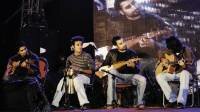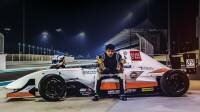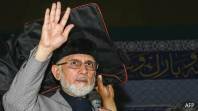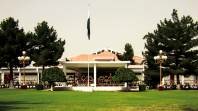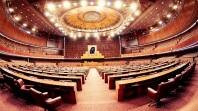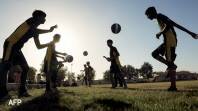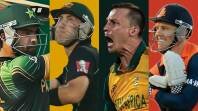As a single point in time hurtling through space, a body beats down a track expending energy, piercing the future, its tip driven by motor oil, sweat and intent. Roaring past, this body in space against time is urged on by a lone driver, his vizored world that of minutes and seconds, blurring into periphery.
In the full armour of his sport, the driver is thrust into his custom-made seat, belted in beyond doubt as engines are roused to the occasion, nerves whipped into frenzy. Rivalry is thick in the air as all lined-up, thoroughbreds are each led to their stations, the oncoming race an ordeal of speed, adrenaline and stress.
The sport is a test of man and machine, compatriots against others, each speeding towards an inexorable end, the finish line a terminus, a conclusion.
Motion as a birthright has spurred man on to seek its fulfillment in manifest form, from ambulation on his own two limbs, to locomotion on wheels, and with these he has propelled himself forward, either in single pursuit or against others craving to outdo and press on, the speed its own opiate.
Racing becomes a natural progression of this desire to move and this need to compete, to be pitted against others is an innate drive that through the ages has found its protagonists as they commit to a sport that is as at once both the charioteer and the arena.
As a general assay of sports in Pakistan we have been woefully undone by our devotion to cricket. Every other sport known to man has been neglected in light of the gentlemen’s game but despite this, recent years have shown that personal endeavour more than institutional support have actually led to Pakistanis making a name for themselves in fields otherwise unknown in these parts. Take for example, Mohammed Karim, Mohammed Asif and Mirza and Samina Baig. These individuals, in the fields of skiing, snooker and mountaineering have gone on to fame in their relatively unconventional sports and it is this same initiative that has typified the story of Saad Ali.
Not a household name as yet, Saad Ali is a racecar driver, self-described as being the only indigenous one. While the image of a racecar driver brings to mind the jet set life, a globe-trotting rock star, ladies on his arm, Mr. Ali is anything but that. Wiry, decidedly boyish with an almost geeky appreciation of engines and the nuts and bolts of things, Saad is a bit of an a posteriori driver. Coming quite literally to the sport from behind (read: within), his interest began primarily with what makes the car, something he readily admits to. “Racing in general, cars, they don’t do anything for me; performance, what makes the car tick, that’s what interests me,’’ he says.
Of course Saad does acknowledge that there is an adrenaline junkie somewhere under his nebbish exterior, indeed it is something that could have possibly been inherited from his pilot father. With a brother already training to be a pilot, it was apparent after high school that Saad too would become a fly boy but there was an epiphany to come.
“I was all set to become a pilot but then I had a thought that if I am spending all this money training to be a pilot, why not try my hand at racing?”
Thus began Saad’s long slog to becoming a racecar driver, a story marked by good intentions but frustrated by the very milieu in which it was set. Getting off to a brisk start in Bahrain where he attended an international racing school he graduated top of his course, moving on to Formula BMW where he got his first taste of competition in 2006 racing against other amateur international drivers, placing in third making him as he quips, “big in Bahrain”, adding, “That race kinda determined things for me; I knew that I wanted to do this.”
From early on, Saad appeared to be a quick learner since ordinarily drivers work their way up from karting to racecars, but Saad learned to walk before he crawled and started with racecars, possibly trying to make up for lost time.
Following his success in Bahrain Saad received a scholarship from BMW to train in Malaysia with other drivers where his performance on the track led to meetings with the boss of the Pakistani A1 Grand Prix team. However as Mr. Ali explains, the timing proved to be unlucky.
“Even though A1 GP was set in the off-season for Formula 1, it was more or less competing for the same audiences, ratings and sponsors, and F1 ended up winning. It was interesting in that unlike F1 you had a single-make car however on the whole it didn’t outshine F1.”
The ensuing ‘wilderness period’ that Saad experienced saw little racing from the driver himself other than ‘seat-time’ on a simulator at home and the occasional karting race in Pakistan, seeing his career almost stall for 5-years.
“Racing is a rich man’s sport. I mean just look at the suit and helmet which alone cost a couple of thousand dollars, forget about owning your own car. Racing runs on sponsorships but unfortunately here in Pakistan there isn’t much idea about the sport and the past 5-years proved that.”
Saad’s close friend and manager Bilal Ibrar seconds this saying, “It’s hard to convince the locals, they don’t trust that racing is worth backing,” continuing “If you’ve ever caught a race, you’ll have noticed race cars or bikes plastered with the decals of various sponsors, and even in the microsecond that they appear before zipping by, they have enough presence to have major brands spend millions on getting their names on the car.”
Attempts in the past to get local sponsors on board saw little enthusiasm and while here in Pakistan, potential sponsors are in the throes of doubt and scratching their heads, neighboring India where sport has become the business to get into have their very own F1 team that is steadily rising through the ranks.
Saad vents his frustration about that fact, noting how most sports in the country are neglected.
“Cricket is the prime example. Yes it is big in the country, yes it’s got the heritage and the history, but all that is not a good enough reason to ignore or not pay the attention they deserve to other sports. In the recent past, Pakistanis have been representing Pakistan in a lot of sports and they deserve to be supported.”
It is this very mix of indifference and ignorance that has led Saad’s career as well as that of many other sportsmen to flounder to possible oblivion, talent being dashed on a three-wicket green. While we are quick to award such sportsmen in the wake of their achievements, this ardour borne of slow-acting patriotism is wholly misguided. Of course this begs the question as to whether there is a future for motorsports in Pakistan, to which Saad replies,
“Definitely, everybody loves driving, and driving fast! If there were to be a proper racing facility/infrastructure there will be huge interest leading towards motorsports. Giving the masses a racing track, a controlled environment to drive beyond their limits will not only diminish illegal street racing but also help making public roads safer!”
Not wishing to fade away Saad was active in other aspects of the sports, helping to develop a local go-karting race track but it wasn’t until a chance meeting in Dubai last year that got Saad back on the proverbial horse.
“I was actually at a store in the UAE, buying a new race suit and started talking to the owner, and that’s how I got into the FG1000 races. Of course it’s worth mentioning that I had to pay to be in the series and it cost me an arm and a leg but it was worth it, the race and the results proved to me that I’ve still got what it takes.”
Saad took part in the Formula Gulf 1000 in the UAE where despite years out of the saddle he was able to compete and best more seasoned drivers, taking the podium twice and impressing track and team officials. One result in particular in which Saad came 4/10ths of a second under the reigning Formula Gulf 1000 champion brought Saad to the attention of Brazilian autoracing driver Thomas Erdos, who helped Saad through the tournament, giving him pointers on how to improve, and the encouragement to stick to the sport.
Since getting back from the UAE, recharged and most definitely reinspired, Saad has hit the ground running, preparing to approach potential sponsors for the road ahead (having already secured local nutrition bar maker Raise d’Bar whose logo appeared on Saad’s FG1000 car).
And what, may we ask is the road ahead?
“Every driver has that one dream, to make it to F1. I know I started off late, look at Lewis Hamilton; he’s been at it since he was a kid and was lucky to have had sponsors all his life, so I don’t know if F1 is actually possible but I’m certainly going to try for it. Next up is the Renault World Series, and from there who knows?”
The writer is a journalist based in Islamabad.



